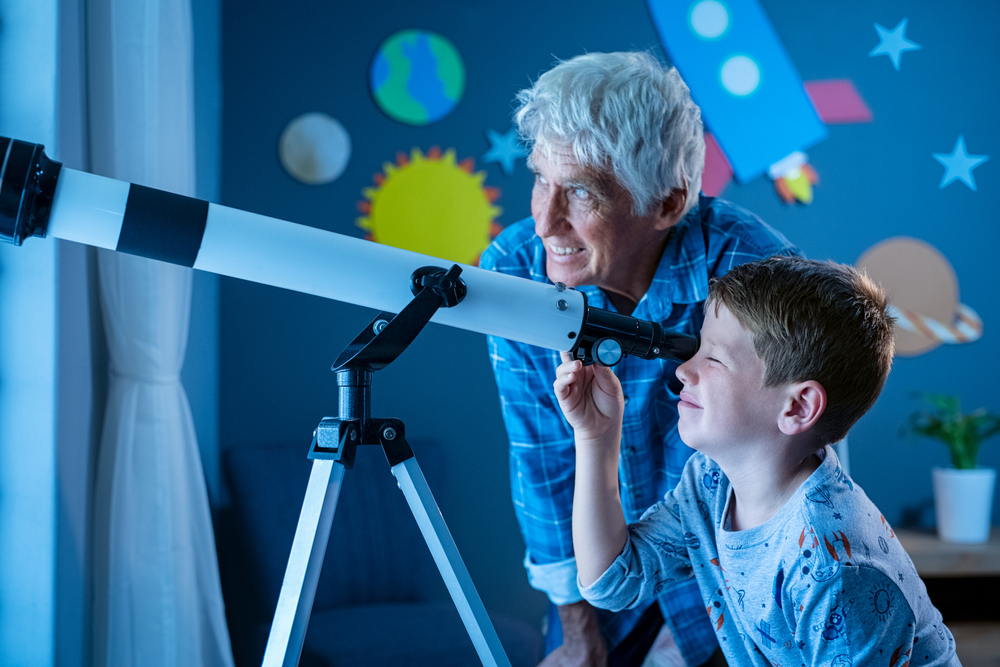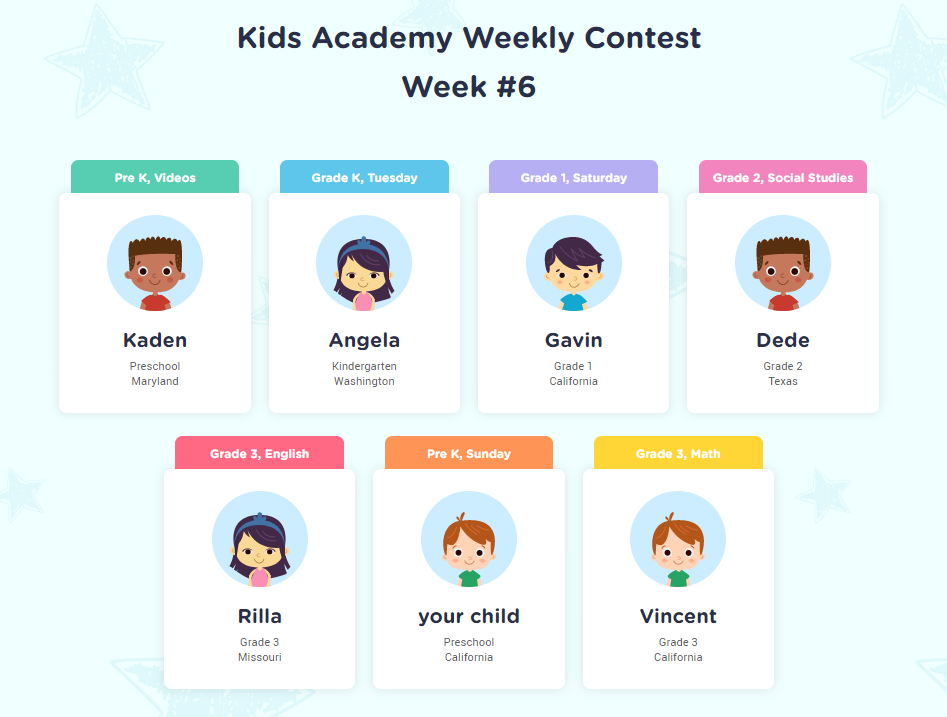Enhancing observation skills Science Worksheets for Ages 3-4
6 filtered results
-
From - To
Unlock your child's potential with our "Enhancing Observation Skills Science Worksheets for Ages 3-4". Carefully crafted to capture the curious minds of young learners, these interactive worksheets aim to develop vital observation skills through engaging activities. Whether discerning object patterns, identifying differences, or observing nature, each worksheet focuses on nurturing attention to detail and critical thinking. Perfect for home or classroom use, these resources will keep children interested and excited about learning through exploration and discovery. Set the foundation for future scientific inquiry and academic success with our fun, educational science worksheets today!


Pollinator Positions Worksheet
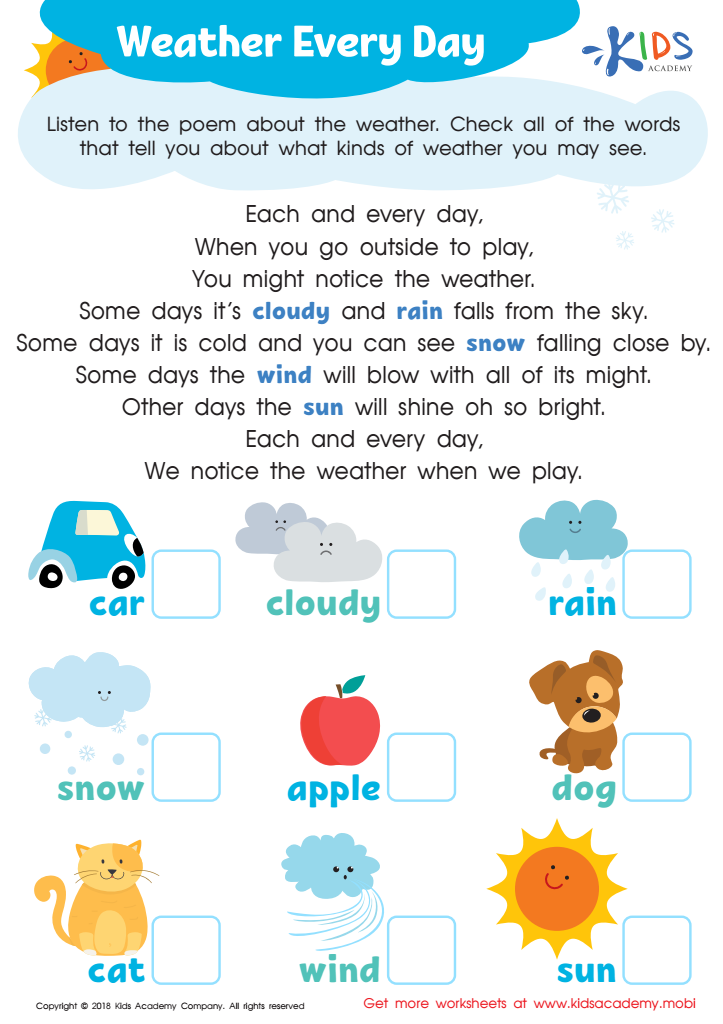

Weather Every Day Worksheet
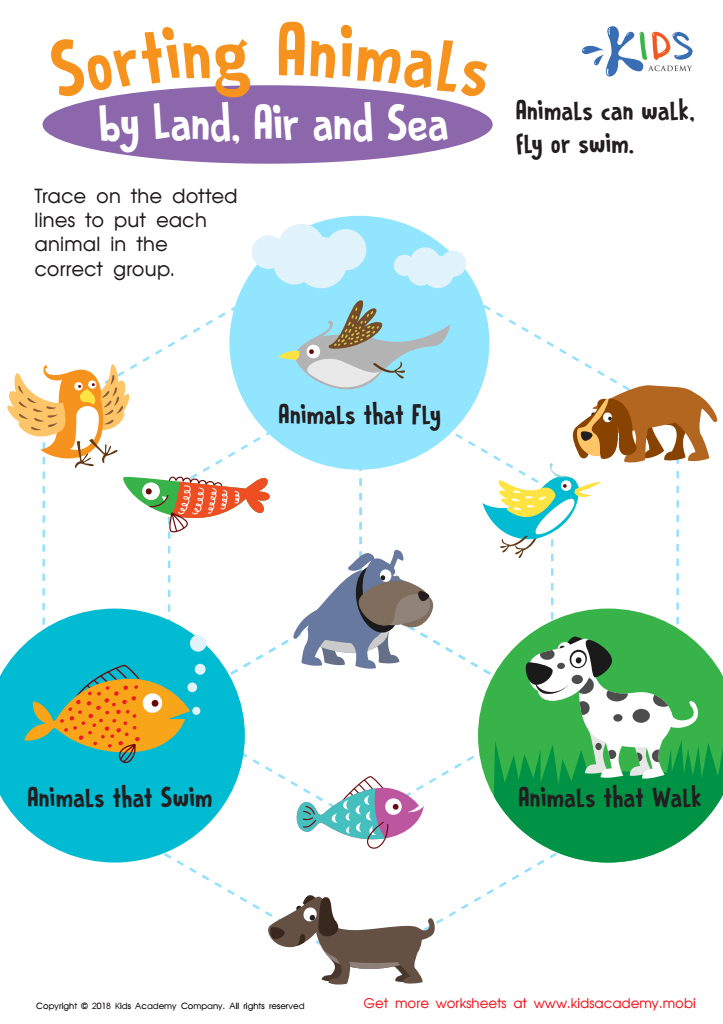

Sorting Animals by Land, Air and Sea Worksheet
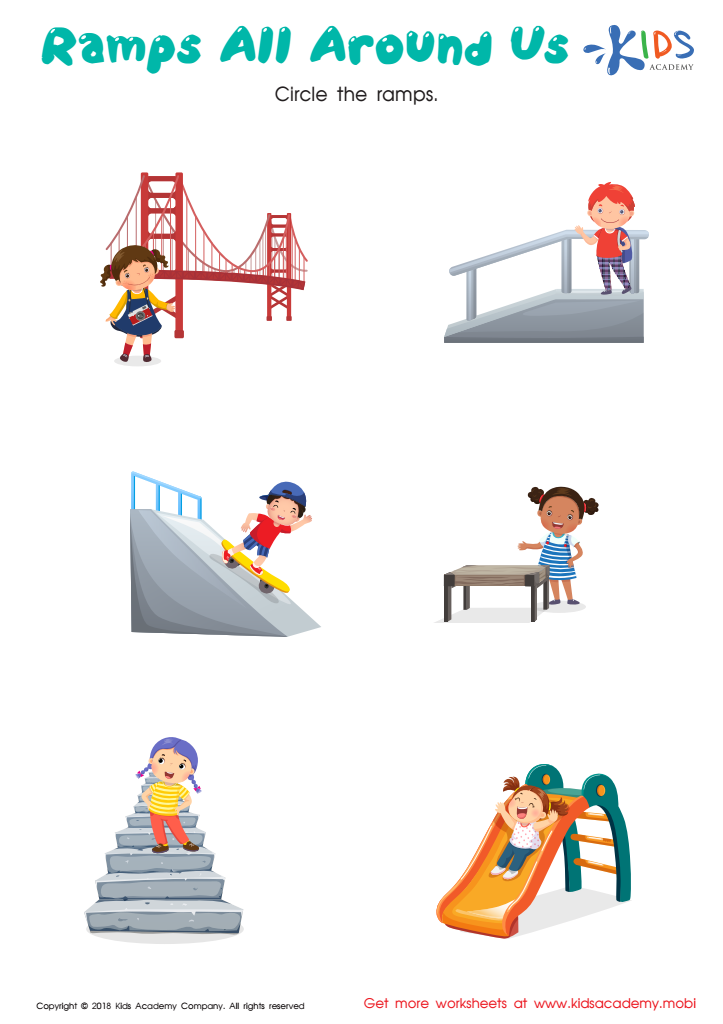

Ramps All Around us Worksheet
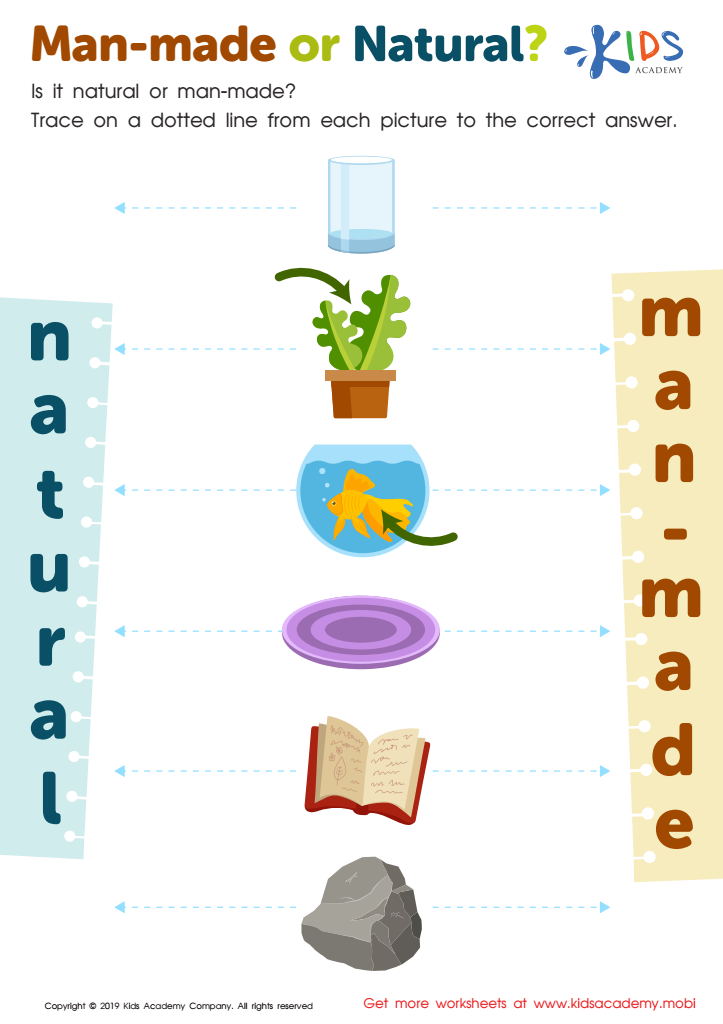

Man-Made or Natural? Worksheet
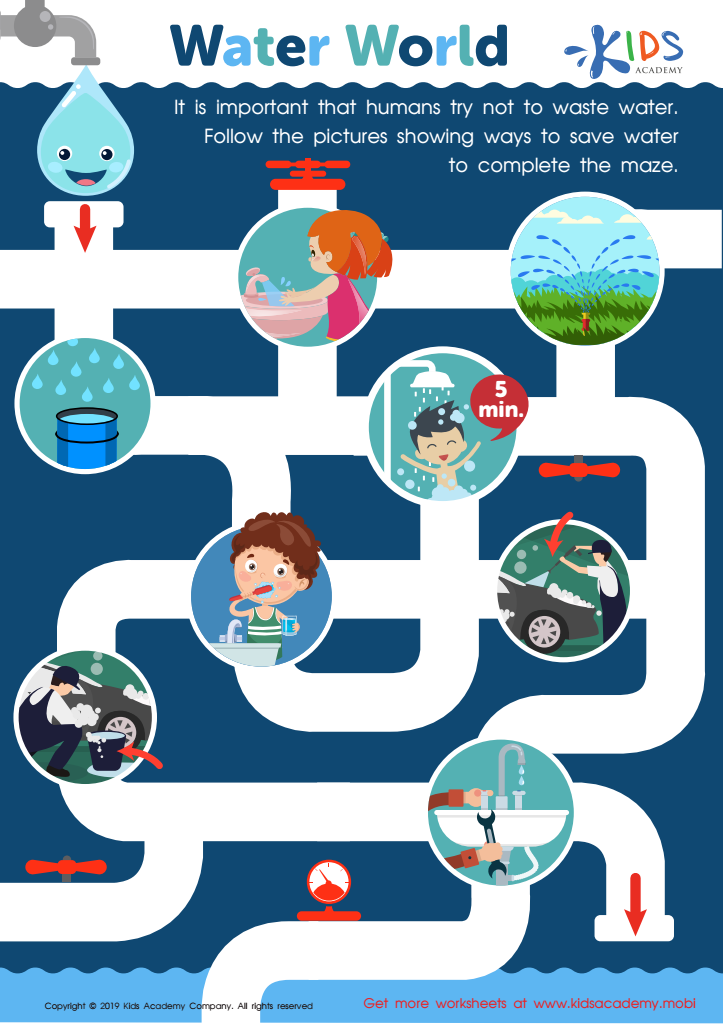

Water World Worksheet
Enhancing observation skills in early science education for children aged 3-4 is critical for several reasons. Firstly, observation is a foundational skill that supports cognitive development. Through observing, children learn to notice details, recognize patterns, and make connections, which are crucial for problem-solving and critical thinking. These skills are not only essential for science but for overall academic success and day-to-day reasoning.
Secondly, early exposure to scientific concepts through observation helps spark curiosity and a love for learning. Young children are naturally inquisitive, and guiding their curiosity through structured observation allows them to explore and understand the world around them. This sets a positive learning trajectory, as early enthusiasm for science can lead to sustained interest and proficiency in the subject as they grow older.
Moreover, developing observation skills encourages children to use their senses, enhancing sensory integration and fine motor skills. Activities like examining leaves, water, or insects involve touch, sight, and sometimes even smell, fostering a multi-sensory learning environment that caters to different learning styles.
Finally, these practices also teach patience and focus, as children must pay attention to detail and often wait to see the outcomes of their observations. In summary, enhancing observation skills in young learners nurtures cognitive development, fosters a lifelong love of learning, refines sensory skills, and instills patience, making it a vital aspect of early childhood education.
 Assign to My Students
Assign to My Students


